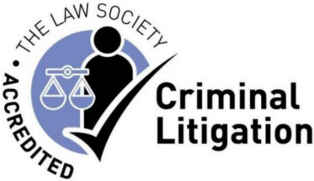What Happens If a Solicitor Is Named as Executor and Will Not Act? 
It’s common for solicitor to be appointed as executors in a will. But what if that solicitor named as executor but will not act — or just won’t respond? It’s relatively unusual, but unfortunately it does happen.
This can leave grieving families confused and stuck. Here’s what you need to know, and how to move forward if a solicitor-executor refuses to take on the role.
Need specialist legal advice on replacing or removing a solicitor executor? Call us on FREEPHONE 0800 1404544 for FREE initial phone advice – with no strings attached.
Can a solicitor be named as an executor?
Yes — solicitors are often named as professional executors. This might be:
- The family’s trusted solicitor
- A solicitor who helped draft the will
- A law firm appointed for their experience in probate and estate administration (here at Bonallack & Bishop, we have huge experience of this and have acted as executors on hundreds of estates over the years.)
But being named as executor, doesn’t mean that the name solicitor is legally required to act.
Can a solicitor named as executor simply refuse to act?
Yes — any executor (whether a family member or a solicitor) can renounce their role, provided they haven’t already started dealing with the estate.
A solicitor might refuse to act because:
- The estate is more complex than expected
- There’s a risk of dispute or litigation
- They’re retired or no longer practising
- Their firm no longer holds probate expertise
What happens if they will not renounce either?
Some solicitors go silent or fail to act — but don’t formally renounce their role. This can cause serious delays, especially if they’re the sole executor.
If this happens:
- You can apply to the court for a citation to accept or refuse probate
- If the citation is ignored, the solicitor may lose the right to act
- The court can appoint an alternative executor (usually a beneficiary or next of kin)
What Is a Citation to Accept or Refuse Probate?
A citation to accept or refuse probate is a formal legal notice issued by the Probate Registry. It is used when someone named as an executor in a will has not taken any action to deal with the estate. The citation requires that person to either accept the role of executor and apply for probate, or formally renounce their right to do so. If the executor fails to respond within the time set by the court, the person who issued the citation can usually apply for a grant of probate themselves or ask the court to pass over the unresponsive executor.
In effect, a citation ensures that an estate is not left in limbo because an appointed executor refuses to act.
Who Can Apply for a Citation to Accept or Refuse Probate?
A citation can be issued by anyone with an interest in the estate — typically a beneficiary, another executor, or someone entitled to apply for probate if the solicitor named as executor, or in fact any other named executor, fails to act. The process involves preparing and filing a formal request (known as a “citation application”) with the Probate Registry. You will need to provide details of the will, the executor’s name and address, and evidence that the executor has not taken any steps to apply for probate.
Once the Probate Registry issues the citation, it must be personally served on the executor. The executor then has a set period — usually eight days from the date of service — to respond. If they fail to reply, the person who issued the citation may be able to proceed with their own application for a grant of probate or ask the court to appoint someone else to administer the estate.
If you find yourself in this situation, our lawyers can help you by applying for a citation on your behalf. We have plenty of experience of dealing with executor disputes.
Who can apply to take over?
If the solicitor named as executor will not act then the following people can apply to be appointed to take over that role instead:
- Any residuary beneficiary (someone inheriting from the estate)
- A co-executor (if one was named)
- A close relative of the deceased
It’s best to get legal advice before applying, as the court process must be followed correctly.
Can I stop a solicitor from being executor in future?
If a solicitor is named as executor in the will, you generally can’t override that unless:
- They step down voluntarily
- The court removes them for cause
For future wills, it’s a good idea to talk with your loved ones about whether they want a solicitor executor — and if so, which firm or individual they trust.
What happens when a Solicitor Starts Probate but Fails to Continue?
Sometimes a solicitor named as executor begins the probate process but then fails to carry it through — for example, by not applying for the Grant of Probate, failing to collect in assets, or simply ceasing communication with beneficiaries. This situation can be extremely frustrating, particularly when the administration of the estate grinds to a halt and other executors or family members are left in limbo.
If a solicitor has already started acting but is no longer progressing the estate, they cannot simply be replaced without a court order. In most cases, an application can be made under section 50 of the Administration of Justice Act 1985 to have the solicitor formally removed and a new executor or administrator appointed. The court will only grant such an order if it is satisfied that the removal is in the best interests of the estate and beneficiaries.
Our contentious probate solicitors can assist you in gathering evidence of the solicitor’s inaction or unreasonable delay, prepare the necessary application to the Probate Registry, and represent you in court if required. We will also advise you on whether costs can be recovered from the estate or from the solicitor personally, depending on the circumstances.
Taking early legal advice can make a significant difference — often the issue can be resolved without the need for court proceedings if the solicitor is prompted to renounce or cooperate once formal steps are taken. Our team will help you find the quickest and most cost-effective route to get the estate back on track
What if my Solicitor Executor Dies During Probate?
If the solicitor named as executor dies partway through administering an estate and there is no one else within their firm appointed or able to continue, the administration of the estate effectively stops until a replacement executor is appointed. In legal terms, the solicitor’s authority ends immediately on their death. Unless the will names substitute executors, the estate will be left “partly administered,” and a new grant must be obtained before anyone can legally continue dealing with it.
In this situation, one or more of the beneficiaries or next of kin can usually apply for what is known as “letters of administration with the will annexed (de bonis non)”. This allows the new administrator to pick up where the deceased solicitor left off and complete the remaining work. The process can, however, be complex — especially if the solicitor had already handled some assets, held estate funds in a client account, or there are issues retrieving documents from the closed practice.
Our probate dispute team can advise you on the correct legal procedure, prepare the necessary application, and liaise with the Solicitors Regulation Authority (SRA) or the Law Society if the solicitor’s firm has been intervened in or wound up. We will ensure that a suitable replacement executor or administrator is appointed quickly so that the estate can be finalised with minimal further delay.
Need help resolving a solicitor executor issue?
At Bonallack & Bishop, our contested probate lawyers have experience of executor disputes. We can help your family remove or replace solicitor executors who are delaying probate. We’ll guide you through your options, whether you need to:
- Apply for a citation
- Challenge unreasonable delays
- Appoint yourself or another trusted family member instead
Solicitor Named as Executor But Will Not Act? Contact our team today.
Our experienced lawyers will act quickly and professionally to get your probate moving — even if the executor is unresponsive or no longer practising.













